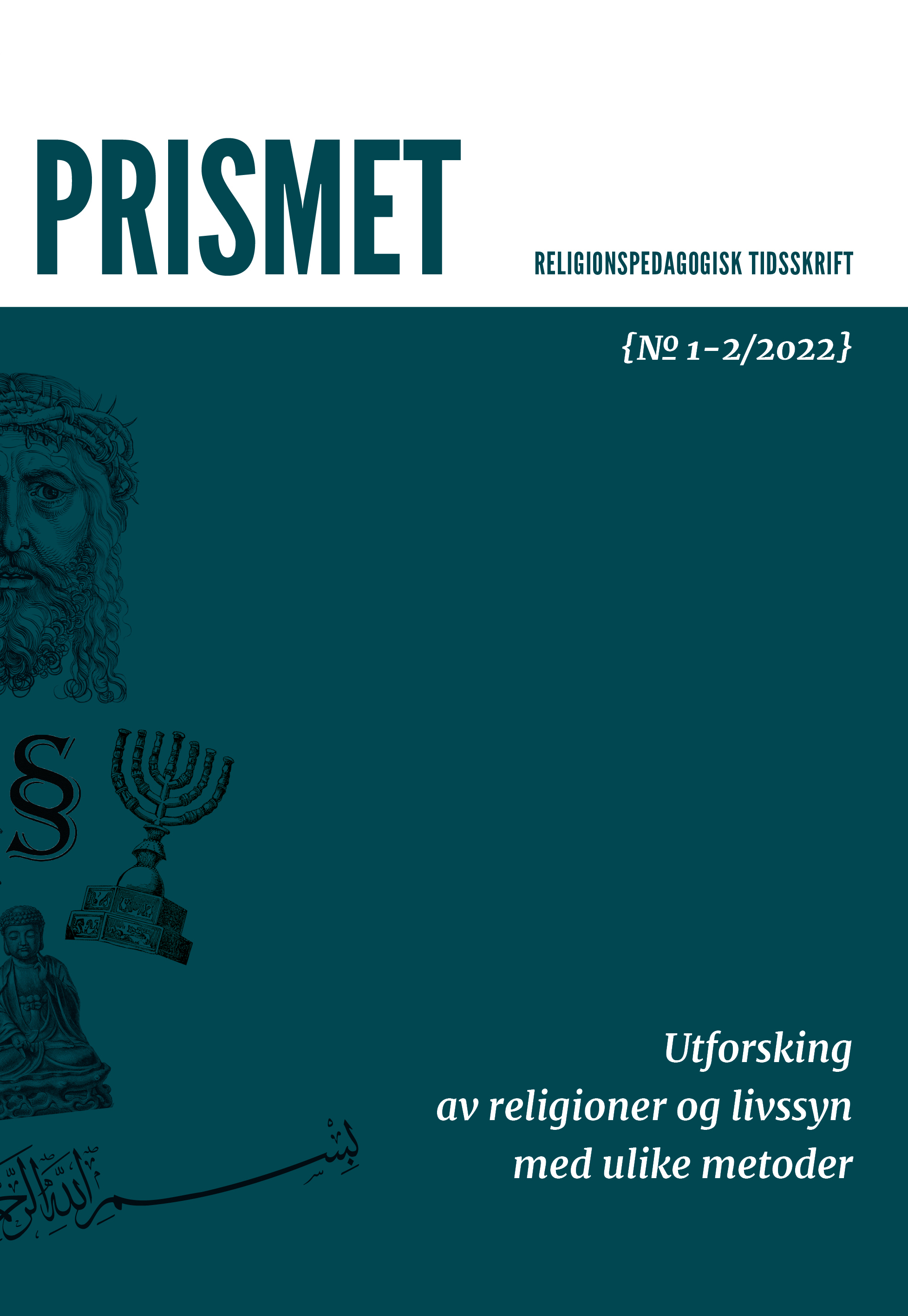Religion og livssyn som begreper i LK20: Utforsking som strategi for å åpne begrepene
DOI:
https://doi.org/10.5617/pri.9701Abstract
In this article we investigate how the terms “religion” and “worldviews” (Norw. livssyn) are used in the new national curricula from 2020 and ask: How to avoid simplified presentations and ways to allow students to explore the phenomena of religion and worldviews as complex historical and present negotiated phenomena? Our reading of the curriculum plans reveals occasional instances of essentializing language and a continuation of privileged positions of Christianity (in the shape of the Norwegian “version”) as religion, but also of the secular humanist worldview (in the shape of its Norwegian history), as worldview. We detect a certain tension to ideals also expressed in the curricula, of open exploration of the phenomena. In this article we discuss why essentialization and privileging of certain traditions can be seen as problematic, but also suggest pragmatic solutions related to ways of theorizing about these core concepts which can pave the way for non-essentialising open approaches in practical teaching and learning. We argue for an exploratory approach to the study of religion and worldviews in schools, as a strategy for opening up the concepts of religion and worldviews to students, in accordance with intentions in core element 2 in the new curricula, which is to explore religion and worldviews with varied methods.
Keywords: Religious education, religion, worldview, enquiry-based approach, non-binary worldviews, interpretive approach, RE-searchers, non-essentialist religion, open and closed concepts
Downloads
Published
Issue
Section
License
Contents published in editions of Prismet in volumes predating 2017 are protected by the Norwegian Copyright Act (http://www.wipo.int/wipolex/en/details.jsp?id=3232). Text and other material published in these journal volumes can only be shared and republished with written permission from article rights holders.
Starting from 2017, the content published in Prismet is - unless otherwise is stated - licensed through Creative Commons License BY-NC 4.0. (https://creativecommons.org/licenses/by-nc/4.0/). Content can be copied, distributed and disseminated in any medium or format under the following terms:
Attribution — You must give appropriate credit, provide a link to the license, and indicate if changes were made. You may do so in any reasonable manner, but not in any way that suggests the licensor endorses you or your use.
Non-Commercial — You may not use the material for commercial purposes.
No additional restrictions — You may not apply legal terms or technological measures that legally restrict others from doing anything the license permits.
Notice: No warranties are given. The license may not give you all of the permissions necessary for your intended use. For example, other rights such as publicity, privacy, or moral rights may limit how you use the material.
Authors who publish in Prismet accept the following conditions:
Author(s) retains copyright to the article and give Prismet rights to first publication while the article is licensed under the Creative Commons CC BY-NC 4.0. This license allows sharing the article for non-commercial purposes, as long as the author and first publishing place Prismet are credited.
The author is free to publish and distribute the work/article after publication in Prismet, as long as the journal is referred to as the first place of publication. Submissions that are under consideration for publication or accepted for publication in Prismet cannot simultaneously be under consideration for publication in other journals, anthologies, monographs or the like. By submitting contributions, the author accepts that the contribution is published in both digital and printed editions of Prismet.



